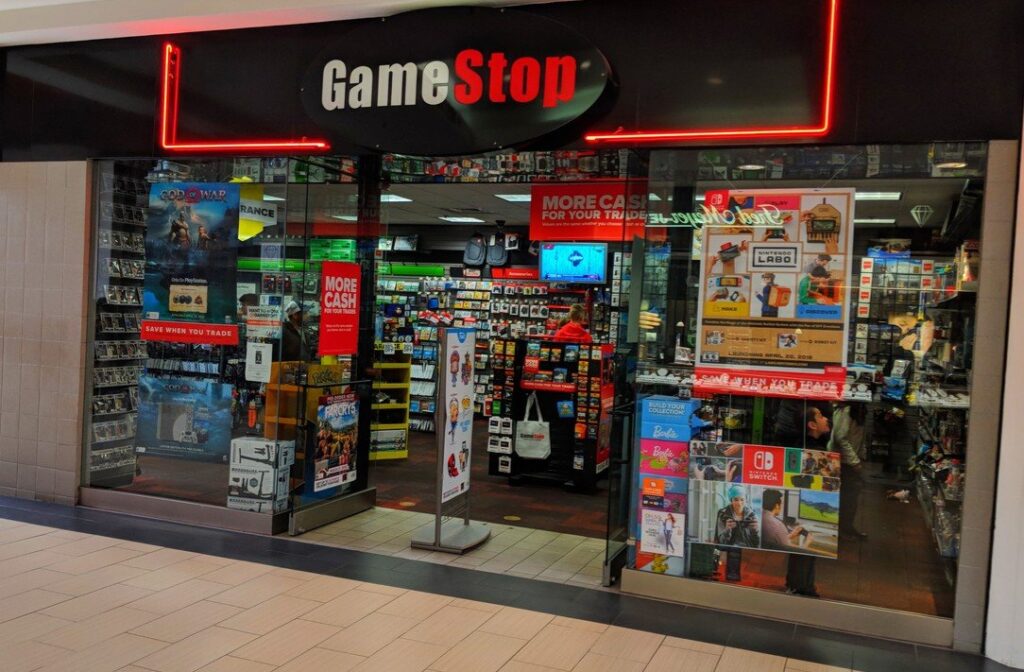
GameStop’s financial landslide continued in Q3 2019, according to the game retailer’s most recent earnings report. During the quarter, total global sales reached $1.4 billion, a drop of 25.7%. The segment that took the biggest hit was hardware, sales of which fell more than 45%. In its quarterly earnings call on Tuesday, GameStop CEO George Sherman pointed to the impending console transition as the main driver of the overall decline, and maintained that similar trends can be seen in the industry at large.
Every other major category showed declines in revenue, including new software (down 32.6%), accessories (down 13.4%), and pre-owned hardware and software (down 13.3%). In total, GameStop’s adjusted net loss for Q3 2019 hit $40.2 million. The company also announced on its earnings call that it expects store closures this year to number between 250 and 300, and it’s planning to cease operations in the Nordic region of Europe.
“Our third quarter results continue to reflect the prevailing industry trends,” Sherman told investors and shareholders. “Most notably the unprecedented decline in new hardware sales seen across the market as the current generation of gaming consoles reach the end of their lifecycle and consumers delay their spending in anticipation of new hardware releases.”
Sherman said GameStop anticipates the downward trend to continue until Q4 2020, when the next generation of consoles are expected to launch. The company’s poor performance during the quarter is reflected in its stock prices, which were sitting at a disappointing $5.38 at the time of this writing.
GameStop has spent much of 2019 scrambling to correct course via efforts such as hiring Sherman in March, and two rounds of layoffs that also affected staff of digital and print publication Game Informer. The one bright spot in the retailer’s financial outlook is its collectables segment, which managed to climb by just over 4% during the quarter. In July, the company announced intentions to restructure and focus on this market, despite shuttering its ThinkGeek brand.
“Our collectibles business continued to show growth, as we continue to improve our product offering in the category,” Sherman said. “We see opportunity in this category as we leverage our unique position to take advantage of fan-favorite franchises launching this year and beyond. As we keep improving our product offering and capitalizing on exclusives, we can leverage our retail expertise to drive an improvement in product margins for the category.”
Sherman also reiterated the board’s commitment to GameStop’s supposed restructure, even if we have yet to see any widespread progress on that front.
“The second pillar of our strategy revolves around establishing GameStop as a social and cultural hub of gaming within each store, online and within the digital environment,” Sherman said. “We have a tremendous brand to leverage has been a trusted partner to the gaming community for decades. The ongoing growth of video games and offshoots like esports offer significant growth potential for GameStop. As we introduced in September, we have developed some unique testing capabilities to help us uncover the proper path to capturing those opportunities.”
It’s understandable that Sherman and the rest of GameStop’s board of directors would seek a concrete reason for the company’s poor performance, but using the console transition as a scapegoat feels flimsy at best. The much-discussed restructure of its business model has yet to take on any corporeal form beyond layoffs and store closures.
For now, though, GameStop stays the course. Holiday 2020 will be hugely important for the retailer, as it hopes to entice more gamers to its stores to purchase the new consoles and associated games. But how much longer can GameStop survive?
“It’s a good bet that by the time Project Scarlett and PS5 stop shipping that GameStop’s physical stores will all be shuttered (as well comparable retailers’ stores in other global markets),” IDC Research Director Lewis Ward told GameDaily previously. “That gives these companies until 2028 or so to either become a leader in some other aspect of the industry or cut their losses and liquidate.”
Ultimately, it could be that the company is once more seeking a buyer, but it’s hard to imagine that any potential investors would be interested in a purchase given GameStop’s recent history.
Sam, the Editor-in-Chief of GameDaily.biz, is a former freelance game reporter. He's been seen at IGN, PCGamesN, PCGamer, Unwinnable, and many more. When not writing about games, he is most likely taking care of his two dogs or pretending to know a lot about artisan coffee. Get in touch with Sam by emailing him at sdesatoff@rektglobal.com or follow him on Twitter.
 GameDaily.biz © 2025 | All Rights Reserved.
GameDaily.biz © 2025 | All Rights Reserved.